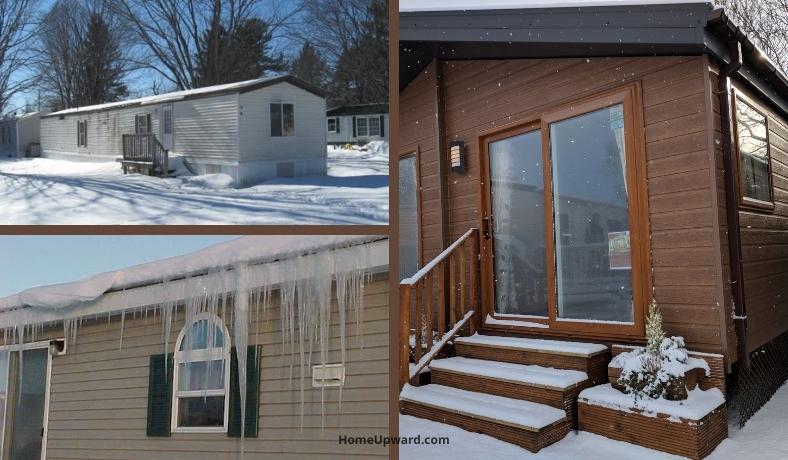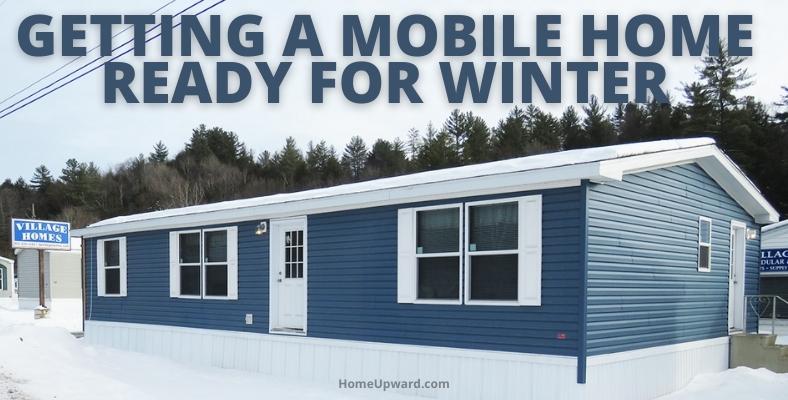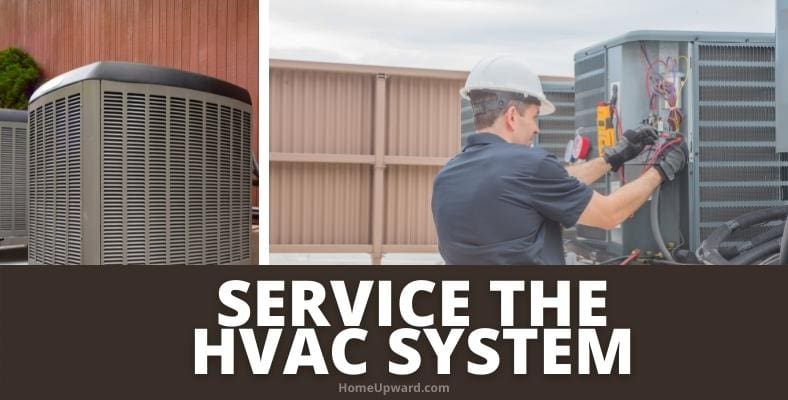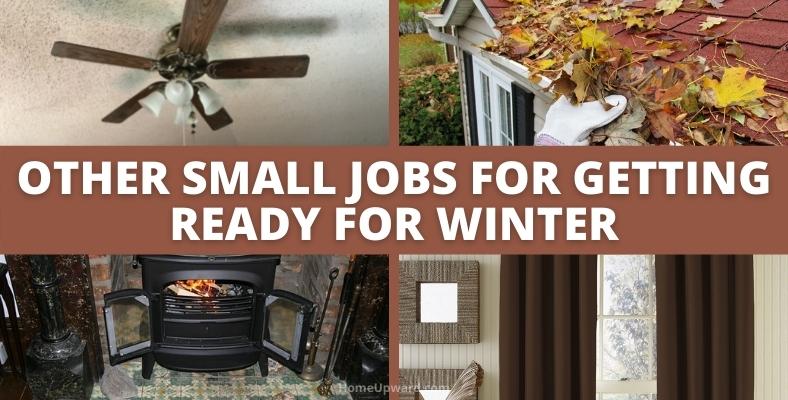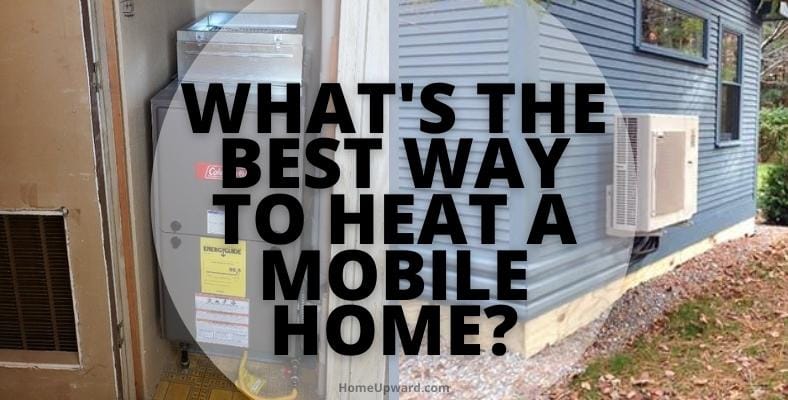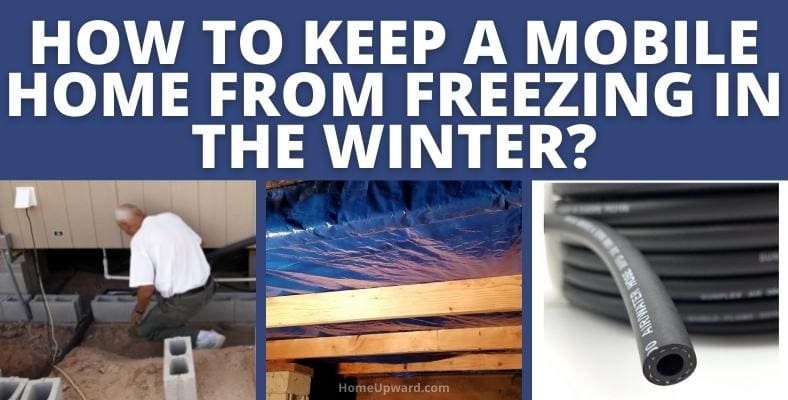When winter draws near, it’s time to switch from trying to keep your mobile home cool to trying to keep it warm.
In this article, you’ll learn how to keep a mobile home warm during the winter.
Contents
Getting a mobile home ready for winter
As far as your mobile home is concerned, there are three main areas to address before winter hits.
These three areas are to keep cold outside air from getting inside, stop hot air from escaping, and keep plumbing and water pipes from freezing.
To accomplish these goals, there are several things that should be done before the cold weather comes.
Address roof and floor insulation
Inspect these areas and add more insulation if necessary. This can be a DIY project or you can bring in a professional.
It’s recommended that you use insulation with an R-value that is not less than 30-50 when insulating the roof and 15-30 when insulating the floor.
Service the HVAC system
Most years, changing the furnace filter and cleaning the exhaust vents should get you ready for winter. Just be sure to turn on the furnace before really cold weather hits to make sure it still works.
Every few years, it is a good idea to have your furnace inspected and cleaned to make sure that everything is in good working order.
Make the windows and doors in your mobile home more energy efficient
If your windows are old, consider changing them to newer energy-efficient windows. If this is more than your budget right now, look for any gaps and seal them off with caulking or weather-stripping.
Also, consider changing your doors to energy-efficient doors and also check for gaps.
Walk around your mobile home and look for any other holes that need to be filled. These are common around places where the plumbing comes into the home: around electrical outlets, in seams in the mobile home, and at the corners of the floor and the roof.
Other small jobs for getting ready for winter
Switch your ceiling fans to rotate clockwise. This will push the warm air that rises back down.
Clean your gutters to make sure that snowfall will be able to melt and flow easily to your downspouts.
Clean your chimney and fireplace if you have one.
Consider hanging heavy drapes to keep the warm air in and the cool air out, this is especially helpful overnight when the drapes are closed tightly.
What’s the best way to heat a mobile home?
Just as mobile homes are hard to keep cool in the summer, it’s also difficult to keep them warm in the winter. It’s easy for heat to escape.
Therefore, it’s important to use a solid heat source for your mobile home, but also take steps to make your home more energy efficient by paying attention to insulation and air leaks as mentioned above.
The two best methods of heating a mobile home are a furnace and a heat pump.
Mobile home furnace
A mobile home furnace provides heat to the entire home through vents by burning a fuel such as natural gas, or by using electric heating elements. Both of these methods heat the air, which is then sent through the ductwork to all areas of the home.
Mobile home furnaces are usually smaller than those found in other homes. The furnace is usually set in a dedicated closet inside the home, but sometimes they are installed under the mobile home.
The cost of a new gas or propane furnace starts at around $800, while an electric furnace would be closer to $600. Installation can cost as much as $2,000 depending on the job.
Electric furnaces may be cheaper upfront, but usually cost more to run.
Mobile home heat pump
An alternative to a furnace is a heat pump, especially if you live in a warmer climate. These don’t use a duct system and cost much less to operate.
Heat pumps use a compressor, an indoor and an outdoor copper coil, and a liquid refrigerant to pull in heat from the surrounding air. However, these units don’t work well when the temperature drops below freezing.
If you’re living in a cold climate, you could consider using a heat pump with a furnace or be prepared to pay more when the temperatures drop.
A benefit of a heat pump is that it can also produce cool air during the summer.
Other things to consider:
Sometimes, it could be smart to use a space heater or a heating window unit to heat a single room in the mobile home. This could cut costs if you spend most of your time in one room.
These are also handy to have around if your furnace breaks. You can never be too prepared.
How to keep a mobile home from freezing in the winter?
Preparing the plumbing is one of the most important things that a mobile homeowner can do before winter. Plumbing in mobile homes is more likely to freeze than in a traditional home.
If you will be leaving and not living in the mobile home over the winter, drain all water from the plumbing. Be sure to get every single tap and water source in the home and blow out all of the pipes with an air compressor.
Flush all of the toilets, drain the hot water heater, and think of all other areas where water comes out. Be sure there is no water left in any home systems.
If you will be living in the mobile home over the winter, you must also take steps to keep the pipes from freezing. Consider replacing copper or metal pipes with plastic or rubber pipes, as these are less prone to freezing.
Insulate your pipes. Buy rubber or fiberglass pipe wraps and put them around your pipes, securing them with cable ties, duct tape, or foil wrap.
Take a look at the skirting and inspect the crawl space. If there is any damage to the skirting or vents, make sure you repair it.
Also consider adding more insulation to this area to keep your mobile home warmer.
Lastly, be sure to drain your hoses and cover your hose bibs and run water regularly in the home to prevent freezing pipes. Run every faucet in the house regularly.

